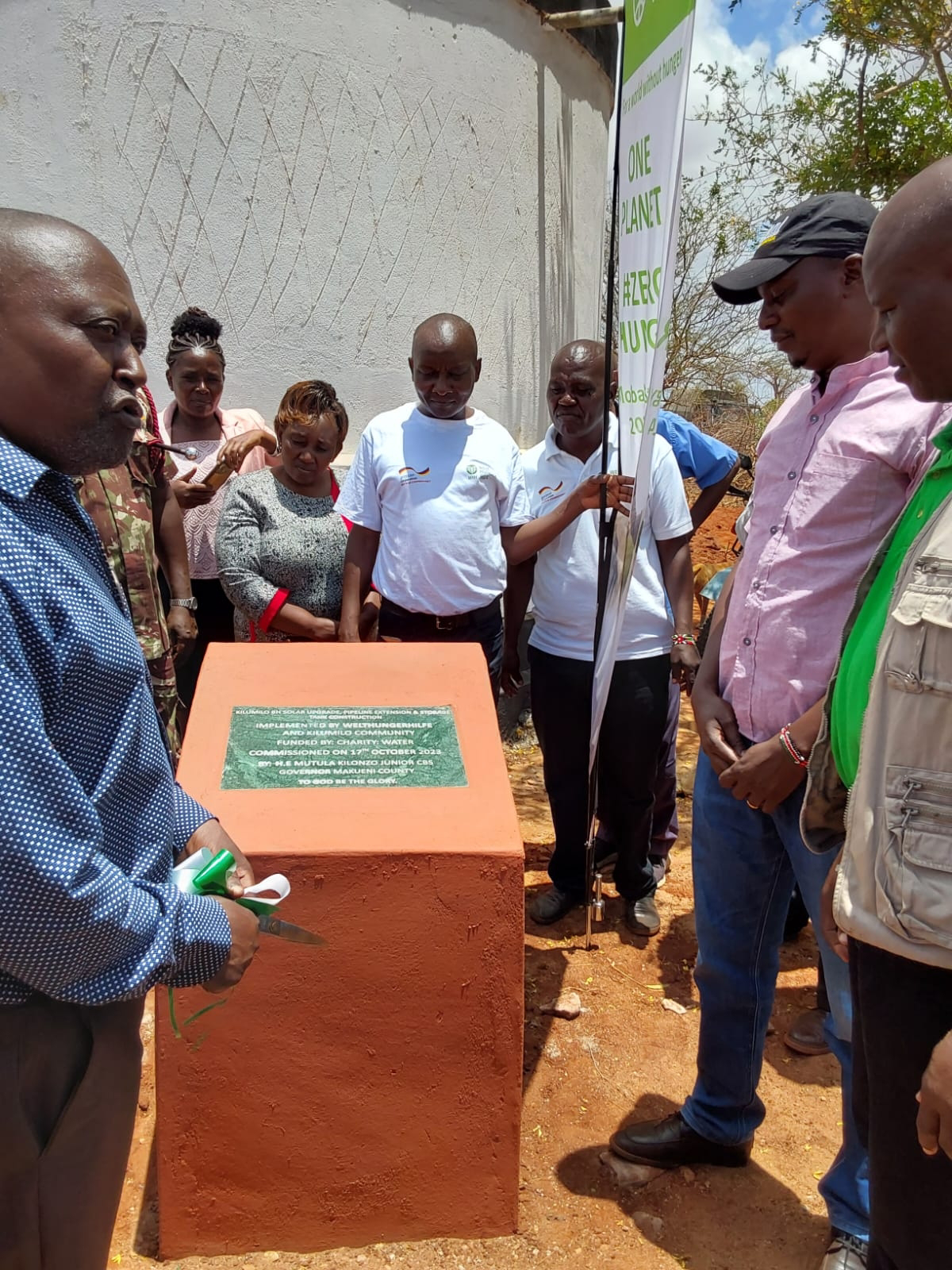How a farmer developed a Fodder empire in dry Makueni
By Sabastian mwaluko
Mtito-andei ward is arguably one of the driest areas in Kenya. An area that majority of us would not wish to live in, referring to it as a useless hot and dry region. This notion of late has changed as a result of the open mindedness of the inhabitants of this particular area.
In our quest to knowing much about the survival tactics within Mtito-andei ward, we met Madam Regina Mbaika, a 70 - year old lady who has established an expansive fodder farm within Mtito-andei ward. Regina says that she was a local tailor in the early 1990s in Nairobi, and was married to John Muindi, who they later separated after migrating from chullu hills to her current place of residence. Regina says that they were chased from Chullu hills by the government in the early 1980s and being a single mother of five children who was just but a mere tailor felt challenged on where she would move on to settle her children.
“After divorcing my husband and fleeing Chullu hills I came back to my parents who granted me 10 acres of land where I started my life from scratch." Said Regina during an interview with us. Regina says she practiced crop farming for about five years in vain until a time when she gave up on it and started animal farming by buying herself two cows and one bull, all of which were indigenous but later crossbred them with a hybrid type.
Regina and Fodder Production
Regina says that she started fodder Crop farming to cater for feed her few cattle but later made it her business after realizing that fodder crop farming was an amazing gap to fill. She explained to us that she learnt about fodder crops like Napier, Boma and Rhodes grass from an agricultural farm that was owned by an Indian man alongside River Athi in the year 1999, where she obtained the three grass species by harvesting their seeds from that farm and sowing them in her three-acre farm which she had cleared by then.
"In the first season, only a few seeds germinated but as time moved by, the fodders increased in numbers and in two years time my three-acre farm was full of Boma, Rhodes and Napier grass." Said to us Regina. She further told us that after harvesting her fodders in that first season, she sold them to local buyers at a price of Ksh.150 each bale where she made KShs.120, 000 from the sales.
"KShs120,000 was an awesome amount of money back then! Only few people could afford it!!" Said Regina. Discovering that fodder crop farming was a great business to enjoy, Regina engaged six men to clear her seven acres of land that were not yet cleared and planted more fodders in the 10- acre farm with Napier, Boma and Rhodes grass carrying 5,3and 2 acres of land respectfully.
After expanding her farm, Regina explained that her income from fodder crops increased and she attracted buyers from both within and outside Makueni County. She also explained that her interest in fodder crop farming attracted the attention of Kenya agricultural institutions such as KALRO and ILRI who have not only trained her on pasture husbandry but also used her expansive farm as a platform for holding workshops when training other farmers and university students.
Regina further revealed to us that she learned of another fodder crop by the name Brachiaria grass from a trip to England where she had gone to learn more about fodder crop farming in the year 2010. She told us that she had capitalized on it by adding 10 more acres of land to plant it and explained to us the huge amounts of profits that she had accumulated by selling it to numerous customers at a price of KSHS. 20 per kilogram.
Regina says that she enjoys fodder crop farming for it is not labor intensive, does not involve using expensive inorganic fertilizers, neither does it require pesticides. She also adds that fodder crop farming does not require tight security like many businesses and she not employed any watchman for her farm and stalls, since nobody is interested in stealing grass. She further notes grass can go for several years without chemical treat if properly stored, thus another privilege that she enjoys from grass farming.
Today, the aged farmer is a respected village millionaire. She has managed to educate all her five children through fodder crop farming to the tertiary levels. Three of them stay in Canada while two of them work in Sweden.
" Being a resident of a given area is a privilege, master the environment keenly and do what that environment dictates you to!" Regina's advice to everyone.




Comments
Post a Comment